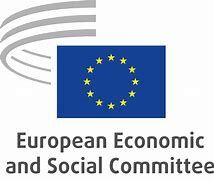 Homepage CASE
Homepage CASE
Selected values

Study on affordable sustainable housing in the EU
-
Date:
24 Nov 2023 - 23 Sep 2024
-
Client:

-
Project duration:
24.11.2023 - 23.09.2024
-

Agnieszka Kulesa
Specialist in Social Sciences
Agnieszka Kulesa has been working at CASE since 2018. She specialises in the labour market, international labour migration, and migration policies within and outside the European Union.
Projects from this author:
- Capacity building for local and regional authorities in the light of the Ukraine Facility (Pillar III)
-
FUTURE FOR ALL – Advancing Cross-Generational Collaboration through Futures Literacy (FFA)
The primary objective of the “FUTURE FOR ALL - Advancing Cross-Generational Collaboration through Futures Literacy (FFA)” project is to encourage active participation of citizens in the life of their respective neighborhoods with a specific emphasis on promoting intergenerational cooperation. The project addressed to elderly and youth residing in youth sociotheraphy centres (and the educators of the respective groups) identifies specific objectives: Face social problems between generations and contributing to lifelong learning Fight stereotypes, improve mutual knowledge and understanding Transfer of knowledge between Norway and Poland, and exchange of experience in applying futures thinking tools in working with intergenerational group Equip seniors and (socially maladjusted) youth with Futures Literacy tools to help them achieve developmental goals for their life stage Raise awareness of the local environment and a sense of responsibility, and agency to improve it To achieve these goals, the project intend to leverage the innovative approach of Futures Literacy to empower and engage the two crucial demographics. Futures Literacy is a concept and methodology developed by the UNESCO that presents an altered perspective on how to perceive and engage with the future (UNESCO, n.a.). It is a cognitive skill and a framework designed to enhance one’s capacity to comprehend, navigate and shape the complex and uncertain nature of the future. Apart from Futures Literacy approach the project will use additional activities designed to address key issues and encourage intergenerational collaboration such as: anti-stereotype and integrational workshops to provide a platform for both generations to openly discuss and challenge stereotypes that may hinder effective collaboration and understanding Urban Game Design: The elderly will take the lead in designing an urban game for the youth, offering them an opportunity to explore and connect with the city they know from a different perspective Planting activity: A shared activity of planting flowers will be organised to foster active citizenship and environmental awareness among the groups. Intergenerational trip: Organisation of a day trip to a museum or a concert chosen by either the elderly or the youth hold immense potential for interesting experiences among the participants The activities planned in the project support intergenerational cooperation, leverage the strengths of different age groups, creating a synergy that is particularly relevant in the context of modern world. By promoting understanding, collaboration, and mutual support among generations we can collectively adapt to and address the complex challenges of today’s rapidly changing world. The project will also strengthen bilateral cooperation between Poland and Norway in the area of building social capital in local communities. It will be achieved by a Polish and a Norwegian organisation that will combine their experiences in supporting active citizenship in their various environments and by using their different areas of expertise. Funding: Fund for Bilateral Relations, hereinafter referred to as the “FBR” the European Economic Area Financial Mechanism 2014-2021 and Norwegian Financial Mechanism 2014-2021 Project Leader: CASE Project Partner: Fremtenkt
-
Rural areas and the geography of discontent
EU skepticism, anti-EU votes in EP, and national elections have increased over the past 10 years, mainly driven by a combination of long-term economic and industrial decline, low levels of education, and lack of local employment opportunities. Rural areas are often characterised by a combination of these factors. The goal of the project commissioned … Continued
-

Agnieszka Maj
Economist
Agnieszka Maj is an Economist at CASE. She holds an MA degree in International Economic Relations from Cracow University of Economics. Currently, she is obtaining an MA in Gender Studies – Intersectionality and Change at Linköping University. During her education (on both BA and MA levels) she participated in numerous exchange programs at the University … <a href="https://case.dev10.pro/project/study-on-affordable-sustainable-housing-in-the-eu/">Continued</a>
Projects from this author:
-
Local and regional success stories of investing in disaster resilience
The aim of the study is to collect, map and share good practices, examples and success stories of investing in disaster resilience (including but not limited to in response to past disasters and the lessons learned from them) at local and regional level. The study focuses on collecting evidence on initiatives, good practice examples and measures taken by the NAT commission members to improve disaster resilience. The study will be built on interviews with NAT commission members based on a questionnaire. The study will also draw conclusions on the benefits of investing in disaster resilience and make some recommendations to local and regional authorities for moving forward based on the success stories collected from the members demonstrating that smart investment at local and regional level can make a difference in disaster risk reduction. The focus will be mainly, but not exclusively, on extreme weather events and climate-related disasters, given their growing frequency, intensity and impact. The study will contribute to knowledge sharing and exchange of good practices, by collecting and sharing success stories from and by members who have invested in reducing vulnerabilities and strengthening disaster resilience at local and regional level. As a repository of local and regional good practice examples, initiatives and measures relating to disaster preparedness and resilience, the aim of the study is also to feed into a bigger and longer-term project to map success stories of investing in disaster resilience on the ground.
- Cancer: repository of regional prevention and detection policies
-
Natural disasters: anticipatory governance and disaster risk management from a local and regional perspective
The COVID-19 pandemic, the war right on our doorstep, the devastating floods in Slovenia, wildfires in Greece and Cyprus, relentless heatwaves in Italy and Spain, to name just a few: all of them highlight the need to better prepare for, cope with and recover from disasters and crises. It is one of the most important challenges for … Continued
-
Local and regional success stories of investing in disaster resilience
-

Karolina Zubel
Environment, Energy and Climate Change Director
Karolina Zubel holds an MSc from the London School of Economics and Political Science and BA from the University of Warsaw and Sciences Po Paris. Currently, she is a PhD student at the Warsaw School of Economics, focusing her research endeavours on smart cities developments. Her work has been at the intersection of sustainability, low-carbon … <a href="https://case.dev10.pro/project/study-on-affordable-sustainable-housing-in-the-eu/">Continued</a>
Projects from this author:
-
Local and regional success stories of investing in disaster resilience
The aim of the study is to collect, map and share good practices, examples and success stories of investing in disaster resilience (including but not limited to in response to past disasters and the lessons learned from them) at local and regional level. The study focuses on collecting evidence on initiatives, good practice examples and measures taken by the NAT commission members to improve disaster resilience. The study will be built on interviews with NAT commission members based on a questionnaire. The study will also draw conclusions on the benefits of investing in disaster resilience and make some recommendations to local and regional authorities for moving forward based on the success stories collected from the members demonstrating that smart investment at local and regional level can make a difference in disaster risk reduction. The focus will be mainly, but not exclusively, on extreme weather events and climate-related disasters, given their growing frequency, intensity and impact. The study will contribute to knowledge sharing and exchange of good practices, by collecting and sharing success stories from and by members who have invested in reducing vulnerabilities and strengthening disaster resilience at local and regional level. As a repository of local and regional good practice examples, initiatives and measures relating to disaster preparedness and resilience, the aim of the study is also to feed into a bigger and longer-term project to map success stories of investing in disaster resilience on the ground.
- Cancer: repository of regional prevention and detection policies
-
Contribution of Mediterranean cities and regions to building water resilience
The world is currently facing a water crisis driven by overdemand, mismanagement and the impacts of the triple crisis of climate change, biodiversity loss and pollution. Alarmingly, 40% of the global population resides in regions confronting water scarcity. In the southern Mediterranean, particularly within the MENA region, the situation is even more dire. This area … Continued
-
Local and regional success stories of investing in disaster resilience
-

Magdalena Wiśniewska
Magdalena Wiśniewska is responsible for managing research projects at CASE. She holds MA in International Relations from the Nicolaus Copernicus University in Toruń and MA in Finance & Accounting from Warsaw School of Economics. During her career she gathered an extensive experience both in the public and private sector. She worked among others for Office … <a href="https://case.dev10.pro/project/study-on-affordable-sustainable-housing-in-the-eu/">Continued</a>
Projects from this author:
-
Local and regional success stories of investing in disaster resilience
The aim of the study is to collect, map and share good practices, examples and success stories of investing in disaster resilience (including but not limited to in response to past disasters and the lessons learned from them) at local and regional level. The study focuses on collecting evidence on initiatives, good practice examples and measures taken by the NAT commission members to improve disaster resilience. The study will be built on interviews with NAT commission members based on a questionnaire. The study will also draw conclusions on the benefits of investing in disaster resilience and make some recommendations to local and regional authorities for moving forward based on the success stories collected from the members demonstrating that smart investment at local and regional level can make a difference in disaster risk reduction. The focus will be mainly, but not exclusively, on extreme weather events and climate-related disasters, given their growing frequency, intensity and impact. The study will contribute to knowledge sharing and exchange of good practices, by collecting and sharing success stories from and by members who have invested in reducing vulnerabilities and strengthening disaster resilience at local and regional level. As a repository of local and regional good practice examples, initiatives and measures relating to disaster preparedness and resilience, the aim of the study is also to feed into a bigger and longer-term project to map success stories of investing in disaster resilience on the ground.
-
VAT gap in Europe – report 2025
The study's primary objective is to collect and supply economic information from existing official economic and statistical databases, as well as to gather primary data from national authorities. The study will also conduct macroeconomic analysis for country-specific VAT compliance and policy gap estimations and the impact of the coronavirus pandemic. Moreover, the study will include up to five case studies on specific countries and/or topics, to be proposed by the contractor in their technical offer. Geographically, the study will cover all EU Member States, subject to quality checks for data reliability and robustness. This includes coverage of the United Kingdom during its time as an EU Member State. In addition, the study will test and implement, where possible, the inclusion of EU candidate countries and possible candidate countries, except for Türkiye. These countries include: • Albania, Montenegro, North Macedonia, and Serbia1 (candidate countries at the stage of accession negotiations); • Ukraine, Moldova, and Bosnia and Herzegovina (Candidate countries for which the Council has decided to open accession negotiations); • Georgia (candidate country); • Kosovo (potential candidate country). The study's temporal scope will cover primarily a 6-year period, comprising: • a comprehensive review and revision of ‘full estimates’ for the first four years, i.e., for 2019-2022; • a new ‘full estimate’ for the fifth year, i.e., for 2023; • provisional ‘fast estimates’ for the sixth year based on simplified methodology for 2024. In addition to the 6-year coverage, the study will provide a historical context by reporting on VAT compliance gaps from 2000 onwards, and VAT policy gap estimates, including its components, from 2016 onwards. This will provide a comprehensive timeline of these indicators. The study will also include a review of the economic and policy context, also including an outlook beyond this 6-year period.
-
Wealth taxation, including net-wealth, capital and exit taxes
The study aims to provide further information regarding the uptake and economic consequences of introducing wealth-related taxes. The purpose of the study is to shed further light firstly into recurrent wealth related taxes by (i) reviewing the conditions for the implementation of a net wealth tax and its consequences, to provide a detailed literature review on recurrent capital taxes in the EU and analyse their economic consequences; and secondly (ii) to provide an overview of existing non-recurrent wealth related taxes, namely, by providing an overview of capital taxes, inheritance and gift taxes and the existing exit tax provisions in the field of personal income taxation (including relevant statutory references), and how these interrelate with and complement the legal framework of taxing net wealth and capital gains. The study builds on previous research work mapping wealth taxes and estimating the consequences of their introduction. It is structured along two parts comprised of two and three workstreams respectively, related to the topics outlined above. Part 1 – Recurrent taxation, Workstream 1 – Net wealth taxes Part 1 – Recurrent taxation, Workstream 2 – Capital taxes Part 2 – Non-recurrent taxation, Workstream 3 – Capital taxes Part 2 – Non-recurrent taxation, Workstream 4 – Inheritance and gift taxes Part 2 – Non-recurrent taxation, Workstream 5 – Exit taxes
-
Local and regional success stories of investing in disaster resilience
The study will contribute to the reflection on possible policy solutions to affordable sustainable housing in the EU, by examining a number of initiatives taken at (sub)national level innovating in the field of housing and determining how these could be relevant in a European context.
The current challenges surrounding the availability of affordable and sustainable housing are linked to a number of factors, a major challenge being the lack of supply in dwellings where demand is strong, such as in urban areas, but also efficiency, market and regulatory restrictions. Recent literature on the topic has identified a wide variety of policy solutions. The UN #Housing2030 report, for instance, identifies policies in four different fields: tools for governance, land policy, finance and investment, and climate neutrality. In this context, the present study will scrutinize a number of new or lesser-known initiatives in two distinctive areas with a view to examining how these initiatives can contribute to affordable sustainable housing in the EU, namely:
- Digitalisation;
- Structures in housing, property development and social economy.
Firstly, in the field of digitalisation, the focus will be on the potential of the digitalisation of building permits, including the use of artificial intelligence (AI) techniques, and on the establishment of a relevant database for buildings in the EU. With the use of AI in digital building permit systems, it is possible to have an overview/analysis of the building substances and the costs related to re-use of the structures and to optimise individual recycling approaches.
Furthermore, the availability of data is a basis for the preservation and revitalisation of the buildin stock and can facilitate recycling and circular approaches. Despite the launch of a Building Stock Observatory at EU level, there is still a lack of implementation in many Member States. The study will contribute to the digital exchange and transfer of European best practices in these fields.
Secondly, the study will contribute to the debate in the area of structures in housing, property development and the social economy. Structures and (legal) frameworks can differ considerably in different countries and have a strong impact on costs and the quality of housing, e.g. in some countries, housing space is provided and governed by non-profit organisations and housing associations (for instance the limited-profit housing associations in Austria). The study will assess the state of play, with the aim to identify best practices to be recommended across the EU.
Client: the European Economic and Social Committee
Related projects
Thanks for joining us!
You're now part of a community that values [your newsletter's focus]. Get ready to stay informed, inspired, and engaged with our carefully curated content.
